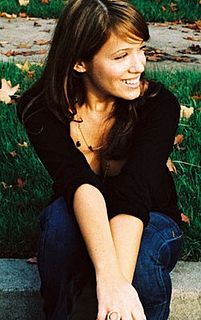A Quote by Kathy Giusti
Although not yet routine, many cancer centers have the technology to sequence some or all of a patient's cancer genome. This can provide massive amounts of valuable information about your cancer, including whether you have genetic mutations and other abnormalities for which new drugs are available.
Related Quotes
If I could get every single cancer genome sequence that has been sequenced; if I could ever put it in one repository, we have the capacity to do a million billion calculations per second. We'll be able to find out more in 10 minutes more than it would take 10 Nobel laureates 10 years to find out about the patterns of cancer and the cures for cancer.
The decrease in incidents of death from cancer is largely attributable to new medicines or therapeutics. Perhaps a third is attributable to changing our environment, and that includes of course smoking which I believe accounted for probably 20 percent of deaths from, certainly from lung cancer, more than that from lung cancer, but from cancer overall.
The development of a strategic plan for cancer prevention in medical schools that is supported by all stakeholders - including the medical community, government, the insurance industry, cancer advocacy groups and all those dedicated to cancer prevention - will be the key to inspiring patients to live lifestyles that will decrease cancer risk.
Cancer is manageable. That if you deprive cancer of what it wants, by proper nutrition, avoiding toxins, avoiding chemicals and pharmaceuticals, sleeping well, eliminating stress, and balancing hormones with natural bioidentical hormones, you have a real shot at keeping your cancer at bay. In this way, you are managing your cancer.





































